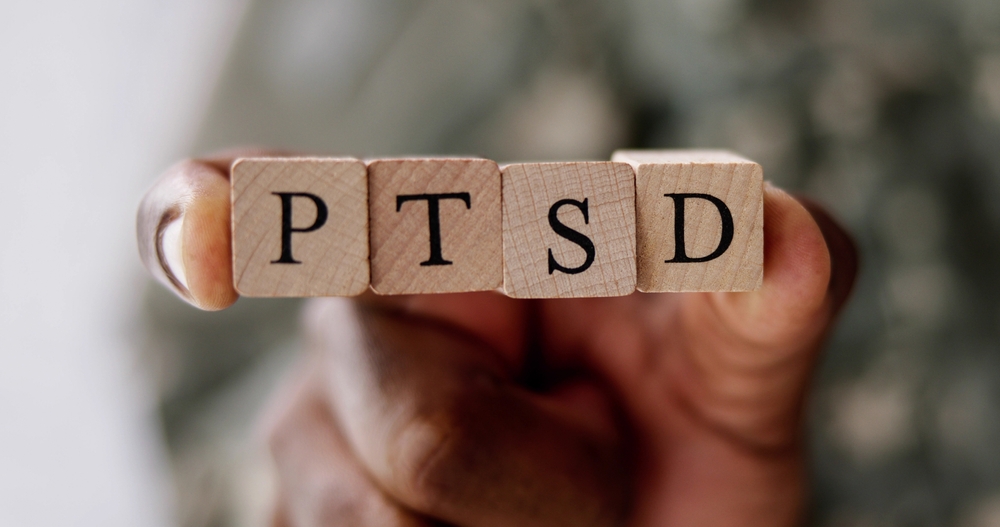Last Updated:
June 20th, 2025

Post-Traumatic Stress Disorder (PTSD) is often associated with dramatic flashbacks, veterans or survivors of major disasters. But the reality is more nuanced and far more common than many realise. You can live with PTSD for years without recognising it, especially if your symptoms are subtle, misattributed, or masked by other mental health conditions. We explore how PTSD can go undetected, the hidden toll it takes on mental health, and why recognising it is the first step toward healing.
What Is PTSD?
PTSD is a mental health condition triggered by experiencing or witnessing a traumatic event. While it’s natural to feel fear or distress after trauma, PTSD occurs when those feelings persist, intensify, or interfere with daily life long after the event has passed. According to the National Institute of Mental Health, PTSD symptoms must last more than a month and be severe enough to disrupt relationships or work to meet diagnostic criteria.
Can You Have PTSD Without Knowing It?
Absolutely. It’s more common than many people realise. PTSD is often misunderstood. The mind has a remarkable way of burying traumatic experiences while still holding onto them beneath the surface, affecting our thoughts, behaviours, and emotions in ways we don’t always recognise.
Many individuals live with undiagnosed PTSD for years, even decades, without ever identifying the root cause of their emotional or psychological struggles. This can happen for several reasons:
1. Their Trauma Doesn’t “Fit the Mold”
People often associate PTSD with extreme, life-threatening events like war, natural disasters, or physical assault. But trauma is subjective. Emotional abuse, neglect, witnessing domestic violence, losing a loved one suddenly, or even repeated exposure to distress (as experienced by healthcare workers or first responders) can also lead to PTSD. Because these experiences may not be seen as “serious enough,” people may not connect their symptoms to trauma, and neither do some professionals.
2. Delayed-Onset PTSD
PTSD symptoms don’t always appear immediately after the trauma. For some, symptoms can emerge months or even years later, particularly when triggered by a life change, another stressful event, or a situation that subconsciously recalls the original trauma. This delay can create confusion, as the individual may not link current symptoms to a past event.
3. Coping Through Overcompensation
Many people mask their PTSD symptoms by overworking, diving into responsibilities, or appearing “high-functioning.” Others numb themselves with alcohol, drugs, or compulsive behaviours. Emotional detachment, constant busyness, or a need to control every aspect of life can all be ways the brain tries to manage unprocessed trauma. Unfortunately, these coping mechanisms and emotional avoidances can obscure the presence of PTSD both to the person and to those around them.
4. Misdiagnosis
PTSD shares many symptoms with other mental health conditions, such as:
- Depression (low mood, disinterest in life)
- Anxiety (hypervigilance, restlessness, panic)
- Personality disorders (emotional instability, dissociation)
- Because of this overlap, individuals are often misdiagnosed, and while treatments for these conditions may help manage some symptoms, they don’t address the root trauma.
A study published in BMC Psychiatry revealed that a significant number of civilians with PTSD remain undiagnosed, largely due to symptom overlap with other disorders and a lack of trauma-informed care in primary healthcare settings.
5. Cultural and Personal Barriers
Stigma, lack of education, and minimising one’s own experiences (“others had it worse”) can all prevent people from seeking help or even acknowledging that they’ve been traumatised. Some communities or generations are taught to “just get on with it,” making emotional suppression the norm rather than the exception.
Untreated PTSD can quietly but powerfully influence every area of a person’s life, relationships, career, self-worth, and physical health. Recognising the possibility of undiagnosed PTSD is an important step toward healing.
The Subtle Signs of PTSD
PTSD doesn’t always announce itself with dramatic flashbacks or full-blown panic attacks. More often, it seeps into daily life in quiet, chronic ways — easily dismissed, misinterpreted, or masked as something else entirely.
Some of the most commonly overlooked symptoms of PTSD include:
- Avoidance: Deliberately steering clear of people, places, conversations, or activities that serve as reminders of the trauma; sometimes so subtly that the person doesn’t realise they’re doing it.
- Negative mood shifts: Lingering feelings of guilt, shame, hopelessness, or worthlessness that colour a person’s entire emotional landscape.
- Emotional numbness: A sense of detachment from loved ones or life in general — not feeling joy, not feeling sadness, just… not feeling much at all.
- Hyperarousal: Constantly being on edge, easily startled, irritable, jumpy, or unable to sleep soundly. It’s like the body’s alarm system is stuck in the “on” position.
- Cognitive difficulties: Struggling with focus, memory, or decision-making, even in low-stress environments.
These symptoms can easily be mistaken for general stress, burnout, or other mental health conditions. In fact, PTSD frequently co-occurs with depression, anxiety, and substance use disorders, which can complicate both diagnosis and treatment. This overlap makes it all the more important to stay in tune with your mind and body. If something doesn’t feel right, or if your emotional and mental well-being seems out of balance, don’t brush it off. Prioritising a conversation with a mental health professional could be the first step toward clarity, understanding, and healing.
The Mental Health Impact of Undiagnosed PTSD
Untreated PTSD can quietly wreak havoc on a person’s mental, emotional, and even physical wellbeing. Over time, it can chip away at one’s ability to function day-to-day, maintain relationships, or even hold down a job. The impact isn’t always immediate—but it is deep, persistent, and often devastating.
Common mental health effects of undiagnosed PTSD:
Left unaddressed, PTSD doesn’t just pause life, it redirects it. A study published in The Primary Care Companion to The Journal of Clinical Psychiatry (PMC) highlights how untreated PTSD can lead to cumulative mental health decline, including increased suicide risk and a higher likelihood of developing co-occurring disorders.
Self-esteem can erode over time, and without understanding the root cause, many people blame themselves for their struggles—further isolating them from support and perpetuating the cycle.
Why Early Diagnosis and Treatment Matter
Early recognition of PTSD symptoms is vital. With the right therapeutic support—be it trauma-informed therapy, EMDR, medication, or a combination—people can begin to reclaim their lives. Diagnosis isn’t a label; it’s a key. It opens the door to understanding, support, and ultimately, healing.
Living with untreated PTSD can have profound effects on mental health:
- Chronic anxiety and depression: Persistent feelings of sadness, hopelessness, or fear.
- Substance abuse: Using drugs or alcohol to cope with symptoms.
- Relationship difficulties: Struggling with intimacy, trust, or communication.
- Occupational challenges: Difficulty concentrating, leading to poor job performance or unemployment.
Over time, these issues can erode self-esteem and lead to a diminished quality of life. A study in The Primary Care Companion to The Journal of Clinical Psychiatry highlights the long-term mental health outcomes in people who suffer from PTSD but do not receive appropriate treatment .
Seeking Help and Treatment for PTSD
Recognising the signs of Post-Traumatic Stress Disorder (PTSD) is the vital first step towards healing. If you’ve experienced trauma and find yourself reliving it through flashbacks, nightmares, or heightened anxiety, it’s important to know that effective support is available.
Several proven treatments can significantly reduce the impact PTSD has on your life:
- Cognitive Behavioural Therapy (CBT): This structured talking therapy helps individuals identify unhelpful thought patterns and behaviours that keep them stuck in cycles of fear, guilt, or self-blame. Through CBT, people learn healthier ways of thinking and coping.
- Eye Movement Desensitisation and Reprocessing (EMDR): EMDR is specifically designed to help people process traumatic memories. By using guided eye movements, EMDR reduces the emotional intensity attached to past events, making them easier to live with.
- Medication: Antidepressants and anti-anxiety medications can support individuals in managing symptoms such as insomnia, panic attacks, and depressive thoughts. These are often used in conjunction with therapy for best results.
PTSD can deeply affect every aspect of your life, and for some, it can lead to alcohol or drug addiction as a means to cope. This kind of dependency is more common than many realise, but help is at hand.
If you’re struggling with PTSD, or if you’ve found yourself using substances to manage its symptoms, reach out to us today. You don’t have to carry the weight of trauma alone. Our compassionate team is here to guide you toward recovery and a brighter, healthier future. Just give us a call today.




